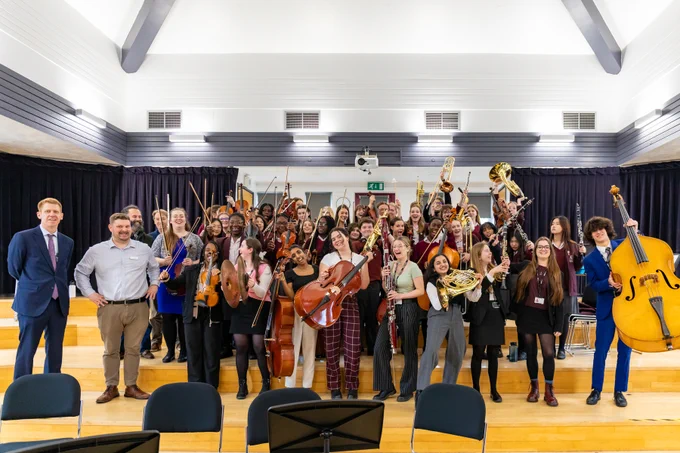Latest News
Women in Leadership Profiles
Name: Christina Hasenhuettl
Role: Research Assistant
Company: “School Quality and Teacher Education Project” at the School of Education, University of Salzburg in collaboration with the University of Oxford
A bit about you: Born and raised in Austria, I have lived in more than five countries, studying and working at different institutions and organisations. My main areas of interest are education, gender equality, and fighting the climate crisis.
What is it like working in your company? Working as a project assistant has so far been a great experience. I am able to learn a lot about quantitative research and statistics, an area that I find more and more interesting. My project leader Dr Roland Bernhard has been nothing but supportive and helpful at every stage of this research project. But I guess working within a University setting, one’s experience will always depend on one’s supervisor or team and probably can be quite different for everyone.
Why did you decide to go into your chosen field? When I was 17 I reiceved a partial scholarship to finish my last two years of high school at the United World College (UWC) Mostar, in Bosnia Herzegovina. Living and learning with fellow students from more than 50 countries was an incredibly inspiring process for me, as I could witness the positive and transformational impact education had on our lives. From there onwards, education played a major part in my academic and professional career. For my undergraduate degree I studied International Justice and researched post-war education in Bosnia-Herzegovina as part of my thesis. Later I became a middle school teacher in Vienna through the Teach for Austria programme and currently I am pursuing my MSc in Education at Oxford University.
What qualifications and work experience did you need to reach your current position? I got my current postion by reaching out to my project leader directly. Before applying for my MSc at Oxford I wanted to talk to someone within the department and hence went through the website where I saw that Dr Roland Bernhard was also from Austria. I immediately sent him an email and we connected online before meeting for an interview in person. Besides my initial reach-out I was offered this position due to my MSc acceptance at Oxford. Therefore I strongly encourage all girls and women to reach out, send emails, contact your person(s) of interest and get connected.
What do you enjoy the most about your job? When working or being part of any environment I always ask myself ‘why’. Why do I pursue my current degree? Why did I start my current job? I try to look at the bigger picture and see what the outcome of my input of energy and time is. I make sure that I work towards progressive, positive change within my community. Knowing that my current research will inform policies on school improvement and thus hopefully improve the quality of education for students gives me joy and fullfilment.
What obstacles have you overcome in your career? As a white cis-gendered upper middle class woman I am very aware of my privilege which has given me an enormous headstart in life. As such, I already had a lot less obstacles to overcome compared to someone who is not as privileged as I am. But since most spaces are still largely characterised or influenced by patriarchal strucutures, sexism and mysoginy inhibiting continue to influence how girls and women are seen and treated, including myself. Therefore it is essential for girls and women to empower and support each other and for societies to alleviate such structural obstacles.
Why do you think it is important to have a strong female representation in your industry? I believe it is important to have (strong) female representation in every industry, as half of the population should be represented to equal amounts. But particularly in academia, there is a need for more diverse ideas and voices to be represented including those of women, people of color, queer people, and any other marginalised and traditionally underrepresented group.
What advice would you give those wanting to take a similar career path? First of all make sure that this is a path you actually are passionate about or love. If not, there are so many other fields, opportunities, or paths out there. If you are passionate about research or academia, find your niche or your particular area of focus, a process which might take several years. And again, get connected, reach out, send emails, ask questions, and create a network of connections. If you are in a privileged position it is your duty to use your privilege to support other girls, women or marginalised groups of people.



























